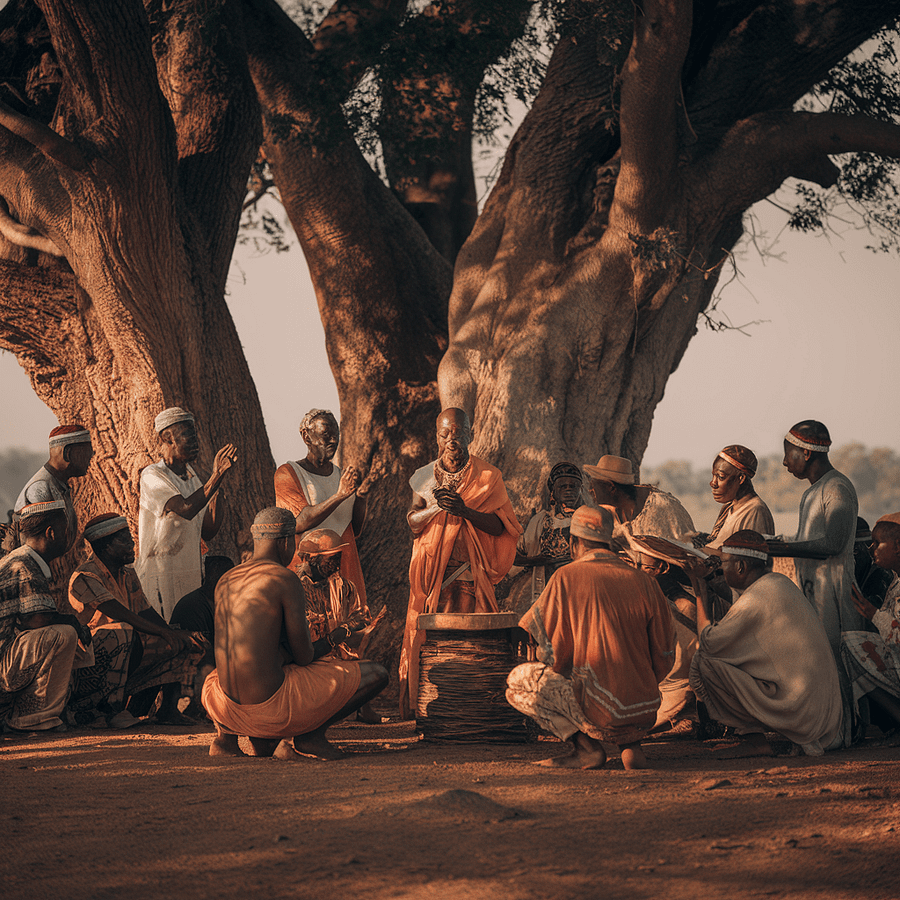The histories of India and Africa are marked by the enduring legacies of colonialism, yet their trajectories diverge significantly when it comes to the adoption of Christianity and the subsequent impacts on their societies. While both regions were subjected to
European domination, India largely resisted the spread of Christianity, whereas Africa experienced widespread conversion to the faith. This essay seeks to explore the contrasting outcomes of colonialism in India and Africa, examining the role of Christianity in shaping their respective histories and trajectories.

India, known for its rich cultural and religious diversity, faced centuries of European colonization, primarily under British rule. However, unlike Africa, where Christianity gained a substantial foothold through missionary activities, India largely remained faithful to its indigenous religions, including Hinduism, Buddhism, Jainism, and Sikhism. This resistance to Christianization played a significant role in shaping India’s post-colonial identity and socio-religious landscape.
One of the key factors contributing to India’s resistance to Christianity was the strength and resilience of its indigenous religious traditions. Hinduism, in particular, served as a unifying force among India’s diverse population, providing a framework for social cohesion and cultural continuity. Additionally, India’s long history of religious pluralism and tolerance fostered an environment where multiple faiths could coexist harmoniously, mitigating the appeal of Christianity as a sole religious authority.
Furthermore, India’s intellectual and spiritual traditions, dating back millennia, provided a strong foundation for resistance to colonial ideologies. Figures such as Mahatma Gandhi and Rabindranath Tagore championed indigenous philosophies and sought to reclaim India’s cultural heritage from colonial subjugation. Through movements such as the Indian National Congress and the Swadeshi movement, Indians mobilized against British imperialism while reaffirming their commitment to traditional values and beliefs.
In contrast, Africa’s experience with Christianity during colonial rule followed a different trajectory. European missionaries, backed by colonial powers, embarked on extensive campaigns to convert Africans to Christianity, often employing coercive tactics and exploiting existing power differentials. The introduction of Christianity in Africa brought profound changes to the continent’s social, cultural, and religious landscapes, contributing to the erosion of indigenous belief systems and the imposition of European values.
The spread of Christianity in Africa was facilitated by various factors, including the vulnerability of African societies in the face of European military and economic dominance, as well as the promise of social and economic advancement associated with Christian conversion. Moreover, colonial administrations often aligned themselves with Christian missionaries, viewing Christianity as a means of exerting control over indigenous populations and legitimizing colonial rule.
The consequences of Africa’s adoption of Christianity during colonial rule are evident in the continent’s post-independence struggles with identity, cultural preservation, and social cohesion. While Christianity has undoubtedly left its mark on Africa, shaping its religious landscape and influencing social norms and practices, it has also been a source of contention and division, particularly in regions where traditional beliefs and Christian doctrines clash.
In conclusion, the contrasting experiences of India and Africa about Christianity and colonialism highlight the complex interplay between religion, culture, and power in shaping historical trajectories. While India’s resistance to Christianity allowed for the preservation of its indigenous religious traditions and cultural heritage, Africa’s embrace of Christianity during colonial rule has had far-reaching implications for its societies and identities. By examining these divergent paths, we gain insight into the enduring legacies of colonialism and the complexities of post-colonial identity formation in a globalized world.
